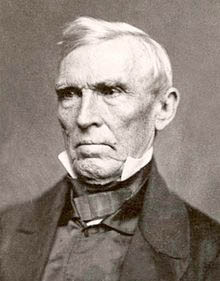 “…may his pernicious soul
“…may his pernicious soul
Rot half a grain a day! he lies to the heart”
(Othello, act 5, sc. 2)
Comments. Not Lincoln, but those who willingly falsify history. Steven Spielberg is one of the topmost masters of US propaganda and the heavily promoted movie “Lincoln” once more proves it. The film is no more accurate in its representation of a crucial period in American history (the consequences of the Civil War),
than George Bush’ tale of Iraq’s “weapons-of-mass-destruction.” Tale that triggered the era of “perpetual war”, the verbal testament of the now disgraced Petreus.
To begin, contrary to popular myth, the Civil War had little if nothing to do with abolishing slavery. In this context, it may be interesting for readers of this entry to read Jefferson Davis’ account of the Civil War. Jefferson Davis was the president of the Confederate States. If the war was to abolish slavery why is it that it was the slave-holding South attacking the Union at Fort Sumter? Should it not have been the other way around?
The Civil War was fought between two sets of White people to see which one would profit most from the products obtained from Black slave labor. Two powerful engines of the American economy—cotton and slaves—were in their South. But the big banks in the North realized most of the profits from their plantations. Hence they decided to end that one-sided relationship and separate from America.
Abraham Lincoln knew that America would collapse without Southern slavery and reluctantly fought the war to maintain the UNION of North and South—and, most important, to keep the slavery wealth flowing from South to North.
In fact, even before the war started, both sides agreed to the Crittenden Resolution, (note for the doubtful – the Crittenden Resolution, agreed upon is NOT the same as the Crittenden Compromise which is totally different and did not pass). The Crittenden Resolution made it clear that the war would not target what they called “established institutions,” namely, slavery
Furthermore, after the abolition of slavery, countless numbers of slaves found themselves indentured to their previous slave-holders and in living conditions worse than before. When an indentured ex-slave could not pay his debts he was conscripted into the coal mines where the average length of survival was three months. Nor it is necessary to point out the obvious – that it took 100 years plus to overcome segregation, which is but the sister of slavery.
Contrary to popular belief, Lincoln’s famous Emancipation Proclamation did not “free” a single Black person from chattel slavery—not one. When it looked like the Union was losing the war, Lincoln “freed” slaves in the South so that they could fight against their masters. In that same document he made sure that slavery was not disturbed where it existed in the North!
…. And so on with plenty of other examples. That history books perpetuate the myths and that the myths survive intact in the collective mind is striking evidence of the unsurpassed power of American propaganda. For the purpose of “full spectrum dominance” the less is known about history the better (see the United States of Amnesia of Gore Vidal). But when the whiffs of history cannot be avoided, history must be sanitized – so that the message complies with the “full spectrum dominance” philosophy.
Still, anyone who lies so openly and shamelessly well deserves the curse contained in this entry.
If you like this website why not subscribe (see last menu item to the right)? You will get automatically any new blog as well as any other information and novelty that will be forthcoming. And check the Shakespeare book too.
Tips for Use. A good curse against liars at large.
In the play. Emilia, on hearing from Othello that her husband Iago was the instigator of the jealousy and the events that led to Desdemona’s murder, inveighs against Iago

